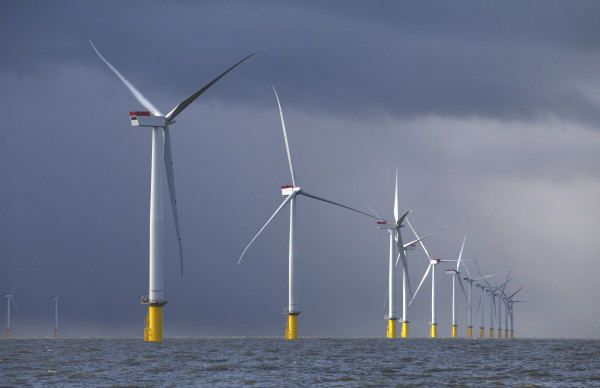

The tumbling of oil prices could see ESG funds soar to the top of performance tables, but experts are divided whether this will prompt investors to flock to ethical portfolios.
This morning (March 9) UK shares tumbled 8 per cent as Brent Crude Oil — the benchmark oil price — fell by almost a third.
The price of oil has been on the decline recently and has lost nearly 50 per cent over the year, but today oil stocks such as Shell and BP fell by nearly 20 per cent after Saudi Arabia launched an aggressive price war against Russia.
Experts have predicted the sudden drop of oil shares, alongside the long-term decline, would see Environmental, Social and Governance funds jump to the top of performance charts throughout the time oil prices wallow.
Jason Hollands, director of communications at Tilney, said: “The collapse of the oil price means in the near term ESG funds will soar to the top of performance tables.”
This is because almost all ESG funds avoid or negatively screen against oil stocks, meaning their performance will not be affected by the plummeting share price. By comparison, BP and Shell feature in the majority of UK Equity Income funds.
Tom Sparke, investment manager at GDIM, agreed, adding that he had seen an outperformance in his ESG portfolios over the past few weeks because of the knock on energy.
He said: “They all started to rise. We will see investors look at ESG differently if this continues. If people were wavering on ESG and now see that when prospects look bad for the global economy it will be a strong area, they may turn.
“Plus, it’s a bear market for oil companies and really it’s how a fund performs in the down period which will mark its long term success.”
But Ben Yearsley, investment consultant and Fairview Investing, said the move was likely to entice bargain hunters to oil stocks rather than to ESG funds.
He said: “Oil may well quickly rebound and tobacco has held up reasonably well, so not all in favour of ESG funds. The impact of oil at $30 (£23) depends on how long it stays there.”
The last time the Brent Crude Oil price hit levels this low was in January 2016 but it had recovered strongly by January 2017.
Adrian Lowcock, head of personal investing at Willis Owen, said the oil price’s ability to rally and the fact oil majors were offering attractive yields would be appealing to investors.
Mr Hollands said the scenario was a “double-edged sword” for ESG funds, as extremely cheap fossil fuels were now “fiercely price competitive” to renewables. This could mean the demand for renewable energy could slip as oil becomes a cheaper option.
Darius McDermott, managing director at Chelsea Financial Services, agreed, saying it was likely a “buying opportunity” today.
He said: “The airlines could benefit as they can purchase fuel more cheaply. Indeed, Ryanair’s share price is up today and Easyjet is only down 2 per cent. So airlines, hit by coronavirus, could benefit.”
Airlines have been among the worst affected stocks this month as the coronavirus crisis continues to grow. At the end of February, the FTSE 100 faced its biggest weekly drop in more than eight years as the share prices of travel and tourism companies plummeted.
Since then, the coronavirus threat has intensified as the virus has reached the UK and the US while whole areas in the north of Italy have been quarantined.
imogen.tew@ft.com
What do you think about the issues raised by this story? Email us on fa.letters@ft.com to let us know.



